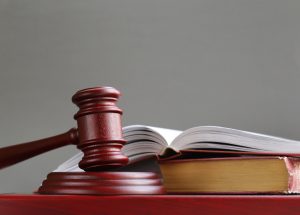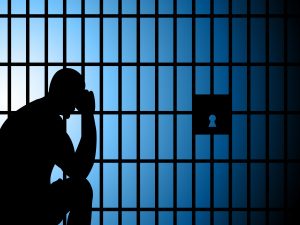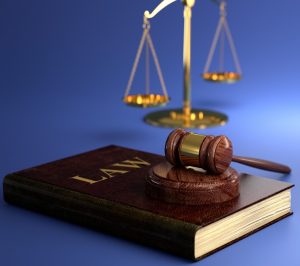
Criminal Defense Attorney 317-636-7514
If you or a loved one was recently charged with a crime, you will soon be surrounded by legal jargon that might confuse and intimidate you. Criminal law terminology is not always clear and straightforward. Many meanings can be complex and multi-faceted, so it is important to always retain the services of an experienced attorney who can guide you through the process accurately and securely.
In the early stages of retaining a licensed defense lawyer, it helps to review some common criminal law terms and learn their definitions. This allows you to prepare questions for your initial meeting with your criminal defense attorney and better understand your legal circumstances. Below you will find some very common and basic criminal law terms defined for your convenience.
Legal Terminology for Criminal Charges
Acquittal – A jury verdict that drops charges against a defendant who has not been proven guilty beyond a reasonable doubt.
Admissible – A term used to describe whether or not evidence can be used in a criminal case.
Affidavit – A printed or written statement of facts that is made under oath, usually by a defendant or witness.
Appeal – A post-trial request asking a higher court (i.e. Court of Appeals) to investigate whether or not the trial was conducted properly and justly.
Appellate Court – The court with the power to review the judgements of lower courts and tribunals.
Arraignment – An initial legal proceeding where a person suspected of a crime is brought forth to court to hear their charges and asked to plead guilty or not guilty.
Bail – The release from jail of a person who was arrested and accused of a crime, but only under restricted conditions designed to secure the person’s appearance in court.
Bench Trial – Trial with no jury, where only a judge decides the facts.
Capital Offense – A crime punishable by death.
Case Law – The law, as established in previous court rulings; also called legal precedent.
Circumstantial Evidence – All of the evidence in a case that is not eye witness testimony.
Conviction – A judgement of guilt against a person accused of a crime.
Community Service – A court-ordered condition that requires offenders to perform work without pay for a civic or nonprofit organization.
Discovery – Disclosure of evidence among counselors before trial. Lawyers examine the facts, documents, and evidence in their opponent’s possession.
Diversion Program – Alternative to criminal prosecution for cases that are usually eligible for dismissal. May include the use of educational classes, victim panels, rehabilitation programs, community service, and more.
Due Process – The constitutional guarantee in criminal law that ensures every defendant will receive a fair and impartial trial.
Evidence – Information, presented in either documents or testimony, used to persuade a judge and/or jury to rule in favor of one side or the other.
Felony – A serious crime that is punishable by one year or more in prison.
Indictment – A formal charge issued by a grand jury that declares there is enough evidence that a defendant committed a crime to justify a trial. Generally used for felony cases.
Jail – A place of detention for individual’s awaiting trial for minor criminal charges.
Judge – A government official that has the authority to decide on legal cases brought before the court.
Jurisprudence – The study of law and the structure of the legal system.
Jury – A group of anonymous people, selected according to law, to hear the evidence in a trial and render a verdict based on facts.
Misdemeanor – Any crime that is punishable by up to one year in jail. A crime that is less serious than a felony.
Motion – A request made by a litigant in a trial, asking a judge to make a decision on a related matter in the case.
Nolo Contendere “No Contest” – A guilty plea in which the defendant does not directly admit guilt or innocence, and refuses to contest the charges against them.
Plea Bargain – An agreement made between a defendant and the prosecution in which the defendant pleads guilty in exchange for reduced charges or sentencing.
Pretrial Conference – A meeting of the judge and lawyers before a trial to examine evidence, review witnesses, set a timetable, discuss which matters should be presented to the jury, and the settlement of the case.
Probation – A federal court-ordered period of monitored supervision, handed down as an alternative to jail time.
Prosecute – To charge a person with a crime.
Sentence –Legal punishment ordered by a federal court for a defendant who has been convicted of a crime.
Standard of Proof – The level of proof required to convict a person of a crime. In criminal cases, prosecution must prove “beyond a reasonable doubt” that a defendant is guilty.
Testimony – Oral statements given by witnesses, field experts, and other relevant parties in a criminal case.
Uphold – When a higher appellate court agrees with the lower court’s decision, and allows their judgement to stand.
Verdict – A judge or trial jury’s decision of “guilty” or “not guilty” of a defendant in a criminal case.
Warrant – A written court order authorizing the arrest or search a person suspected of committing a crime. Generally carried out by law enforcement.
Writs – A formal written court order commanding a person to refrain from or take certain action.
David E. Lewis Attorney at Law

Criminal Defense Lawyer 317-636-7514
Call David E. Lewis Attorney at Law at
317-636-7514 to fight your criminal charges in Indiana. He is an experienced
Indianapolis criminal defense lawyer that will work around the clock to build you an impactful and aggressive defense on your behalf. Trust our law firm to protect your rights and preserve your freedoms. Call 317-636-7514 to schedule a free initial consultation, and get started on your path to justice today.














